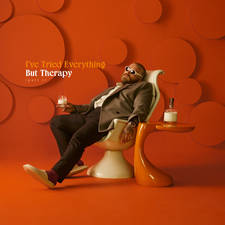Inquest Verdict On Hospital Baby Death
Alex Broughton died within 24 hours of being born in a water birth at Milton Keynes Hospital in December last year - It's the third time in two years that the Milton Keynes Hospital Maternity Unit has been in the spotlight - after the deaths fo Romy Feast and Ebony McCall.
The coroner, Tom Osbourne, found heart monitoring had "failed" to trigger concerns about Alex Broughton, who died within a day of being born at Milton Keynes Hospital. The baby boy suffered brain damage at or around the time he was born in a birthing pool and died a day later on December 3rd 2009 - after being moved to a specialist unit at the John Radcliffe Hospital in Oxford. The Coroner said expert evidence showed the little boy's decline would usually have been reflected in a changeing heart rate during his birth, but it wasn't picked up by monitoring so medics "lost and opportunity" to speed up the delivery and provide more treatment.
Mr Osbourne said there was conflicting evidence about how the baby's heart rate had been monitored by a midwife. The midwife told the inquest she had monitored Alex's heart 11 times during the birth - using an electronic device called a Sonicaid, but Alex's mother, 20 year old Lorna Howell from Broughton, said the baby's heart had only been monitored "perhaps 4 times" and using a trumpet shaped Pinard fetal stethoscope. A third year student from the Oxford Medical School - who was observing the birth - couldn't remember which motniroing method the midwife employed - something the coroner called "suprising and unhelpful".
Alex's father, 20 year old Matthew Broughton told the inquest his partner had been left in a "severely soiled state" for around two hours after giving birth. The hospital also heard how the couple received a "birth congratulations" letter on the day Alex died.
After the inquest, the Alex's grandfather Alan Broughton said "The family are saddened and angry at the loss of baby Alex in December last year. Despite previous unfortunate deaths of two babies at Milton Keynes Hospital, it would seem serious problems continued to exist in the maternity unit.
Despite a normal pregnancy and all the signs leading to a normal birth, we consider that a failure to properly monitor Lorna, despite her reported reduced baby movements hours earlier, had direct consequences to the needless damage caused to our baby immediately before and after birth. In addition, the lack of aftercare and communication for Alex's parents was nothing short of a disgrace.
We're dismayed at the hospital's shortcomings and hope that they recognise the need for improvement. In this respect however we are encouraged by the thoroughness of the inquest and only hope that Milton Keynes Hospital will immediately implement any recommendations identified and not simply pay lip service to them. We'd like to thank the staff of John Radcliffe Hospital in Oxford, not just for the care given to Alex, but also to our family.
Nothing will ever be able bring Alex back to us, he was denied the chance to live a long and healthy life. Our lasting tribute therefore would be that the lessons learnt at this inquest will improve the maternity unit so that it's fit for the expanding population of Milton Keynes."
A spokesman for Milton Keynes Hospital said "No-one can know how the family feels unless they have also experienced the loss of a child themselves. But we want them to know the maternity staff and all the hospital staff grieve with them."After the death of Ebony McCall and Romy Feast, we accepted mistakes had been made and we have been making significant improvements to our maternity services over the last year. While equally tragic, the circumstances around the death of Alexander Broughton were very different. His mother was given one-to-one care by a qualified midwife and appropriate procedures were followed.
"We have made a number of improvements to our maternity services and we are the only hospital in the country able to demonstrate that we are offering one-to-one care with a qualified midwife to every woman in established labour. We have also recruited a number of new midwives, despite a national shortage."
